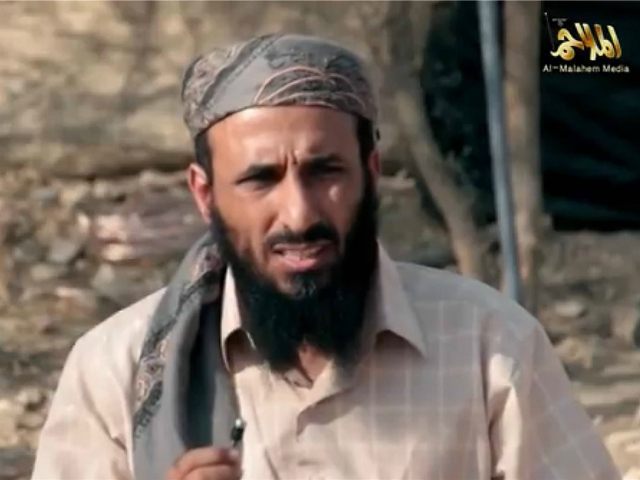Al-Qaeda’s Yemen affiliate, considered the jihadist group’s most potent and dangerous branch, has confirmed that its chief was killed in a U.S. drone strike last week, according to several news reports.
The United States government and Yemeni officials have also concluded that Nasser al-Wuhayshi, the leader of al-Qaeda in the Arabian Peninsula (AQAP) and al-Qaeda’s second in command, has been killed.
This revelation follows a recent report by The Guardian claiming that al-Qaeda “is no longer a functioning organization after being ripped apart” by the Islamic State (ISIS/ISIL).
President Obama’s National Security Council (NSC) described the AQAP chief’s demise as a “major blow” to al-Qaeda.
Although several sources say Wuhayshi was taken out by a U.S. drone strike in Yemen’s Hadramout province, a statement from NSC confirming the AQAP leader’s death does not describe how he was killed.
In an online video, the Yemen-based AQAP announced that its leader had met his end at the hands of a U.S. drone strike, reports BBC.
“May God have mercy on his soul, passed away in an American strike which targeted him along with two of his mujahideen brothers,” declared Khaled Batrafi, a senior AQAP leader, in the video, according to BBC.
“To the infidel America: God has kept alive those who will trouble your life and make you taste the bitterness of defeat,” he added, The New York Times reports.
Quoting unnamed U.S. officials, The Washington Post notes that Wuhayshi was targeted in a June 9 CIA drone strike aimed at the terrorist organization’s leader and other AQAP jihadists, as mentioned by AQAP in the video.
Other news outlets, such as CNN, say the AQAP leader was killed last Friday.
“[Wuhayshi] had led AQAP since its founding in 2009 and oversaw the group’s plotting against the United States, U.S. interests in the Arabian Peninsula, and those of our allies in the region,” said Obama’s NSC in a statement released on Tuesday. “[Wuhayshi] was responsible for the deaths of innocent Yemenis and Westerners, including Americans, but—through the concerted efforts of our counterterrorism professionals—we were able to thwart many of his attack plans.”
AQAP has been linked to several foiled plots against the U.S. homeland, including the attempted attack in December 2009 involving an operative who attempted to bring down a Detroit-bound airliner with an explosive hidden in his underwear.
Qasim Raymi, who served as the AQAP leader’s deputy, has been identified as the terrorist organization’s new chief.
Wuhayshi served as Osama Bin Laden’s personal assistant and was the apparent heir to al-Qaeda leader Ayman al-Zawahiri, noted several news outlets.
The CIA and the U.S. military, namely the Joint Special Operations Command (JSOC), pulled its counterterrorism teams out of Yemen earlier this year following the collapse of the country’s U.S.-backed government.
U.S. troops, in coordination with their Yemeni counterparts, had been participating in operations against AQAP.
Despite the fall of the Yemeni government and the withdrawal of U.S. troops, the Pentagon asserted that it had retained its ability to conduct counterterrorism operations in Yemen.
AQAP, a Sunni terrorist group, appears to be benefiting from the Saudi-led airstrikes targeting the Iran-backed Houthis in Yemen, the group that ousted the Yemeni government favored by the U.S.
The Sunni terrorist group has captured territory and expanded their influence amid the turmoil in war-ravaged Yemen.
Nevertheless, “the deaths of a number of leading figures in AQAP in recent months have reportedly fueled rumors among supporters that it has been successfully targeted by intelligence agencies,” reports BBC.
Citing unnamed U.S. officials and counterterrorism experts, BBC notes, “AQAP is likely to remain a potent terrorist threat.”
Obama’s NSC echoed that point, warning that AQAP, core al-Qaeda, and their allies “will remain persistent in their efforts to threaten the United States, our partners, and our interests.”
Nevertheless, the U.S. government adds that “[Wuhayshi’s] death removes from the battlefield an experienced terrorist leader and brings us closer to degrading and ultimately defeating these groups.”
That being said, U.S. officials and experts also “noted that the organization has regained considerable strength since the collapse of Yemen’s U.S.-backed government earlier this year,” emphasized BBC.

COMMENTS
Please let us know if you're having issues with commenting.